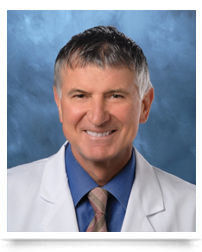Clinical Trials Update: New Minimally-Invasive Mitral Valve Research Studies
Written By: Adam Pick, Patient Advocate, Author & Website Founder
Medical Expert: Pavan Atluri, MD, Director of Minimally Invasive and Robotic Cardiac Surgery at Penn Medicine
Page last updated: November 29, 2022
In our new survey of 1,157 heart valve patients, 73% of respondents stated they were “not very aware” of clinical trials. At the same time, nearly 90% of pre-operative patients stated they want to learn about clinical trials. Interestingly, a significant 59% of patients stated they would consider enrolling in a clinical trial. Only 4% of patients surveyed had previously enrolled in a clinical trial.
Given the massive gap in patient awareness and patient interest specific to clinical trials, HeartValveSurgery.com is taking steps to help patients, their families and friends learn more. For example, we recently interviewed Dr. Pavan Atluri, the Director of Minimally Invasive and Robotic Cardiac Surgery at Penn Medicine. With over 2,000 successful heart valve procedures completed, Dr. Atluri is a mitral valve expert who is working on several clinical trials evaluating less-invasive therapies for mitral regurgitation (a leaky valve) and mitral stenosis (a calcified valve).
Key Learnings About Mitral Valve Clinical Trials
Here are key learnings from Dr. Atluri’s interview about mitral valve clinical trials:
- Dr. Atluri has performed 5,000+ cardiac procedures during the past 20 years. Dr. Atluri realized he wanted to become a cardiac surgeon during medical school. He was captivated by the impact of heart surgery on patients and the technical skills required to treat heart valve disease.
- Performing heart valve surgery provides Dr. Atluri a special opportunity to help patients achieve a normal quality of life and a normal life expectancy. Plus, Dr. Atluri really enjoys working with his patients. Dr. Atluri states, “I love working with my patients. I love interacting with them. I love seeing the benefits that I’m able to provide them. So, I find that all highly gratifying.”
- Considering that Dr. Atluri is a minimally-invasive specialist, he enjoys participating in clinical trials as many, new valvular innovations have been developed using less- or non-invasive devices. Dr. Atluri believes minimally-invasive approaches for heart valve treatment helps patients recover quickly with less pain and/or discomfort.
- While the past two decades have focused on clinical trials for the aortic valve – including transcatheter aortic valve replacement (TAVR) therapies – the mitral valve is now receiving more attention by researchers, physicians, and medical device companies.
- A key mitral valve repair clinical trial is focusing on the MitraClip. The MitraClip is a transcatheter mitral valve repair (TMVr) therapy that has already received FDA approval for functional mitral regurgitation and degenerative disease in high risk patients. Now, the MitraClip is being evaluated for safety-and-efficacy in a clinical trial of intermediate risk patients that compares TMVr to standard surgical techniques. The MitraClip does not require an incision to the patient’s chest or ribs and the MitraClip does not require the patient to be on a heart-lung machine.
- Dr. Atluri suggests that several devices are being conceptualized or about to enter clinical trials for minimally-invasive mitral valve repair. Dr. Atluri states, “There’s a few other devices that are being conceptually developed and will hopefully make it to mainstream clinical trials utilizing various techniques that potentially could mimic some of the techniques that we utilize in surgery like an annuloplasty band to bring together leaflets of mitral valves. There’s also a trial that that we’re about to start where we actually utilize cords that are placed by very small incision in the left chest through the tip of the heart, known as the apex, and we capture these abnormal or diseased parts of the mitral valve leaflet and bring them back into normal confirmation.”
- Clinical trials for mitral valve replacement are also enrolling patients. Patients who might qualify for mitral valve replacement clinical trial have valves that (i) cannot be repaired or (ii) a repair cannot provide long-term durability.
- Early stage clinical trials for mitral valve replacement are for very high risk patients that are not candidates for surgery.
- Recent data for these clinical trials – that include transcatheter mitral valve replacement (TVMR) – are showing promising results. However, there is a lot more to research specific to TMVR clinical trials. Dr. Atluri states, “A few of the therapies have been delivered directly through a vascular puncture in the groin. A few have involved small incisions in the chest to access the heart, so more to come on that category. I think we’re still in the very much the first generation of these devices, and as we continue to see technology evolve, I think the therapy will be remarkable, but I think for low-risk patients, we’re probably still a decade or more away from really true mainstream therapy.”
- While Dr. Atluri is requested to participate in many trials, the Penn Medicine team turns down the vast majority of clinical trials they are asked to participate in.
- Patients are often confused about clinical trials. For that reason, Dr. Atluri takes the time to answer every question asked by his patients in an effort to help his patients learn more about clinical trials. Dr. Atluri states, “You do not want any questions left behind. You really want to understand does this team that is offering the therapy for me really believe in that therapy and really believe that it’s got equal efficacy or equal effectiveness and traditional therapy. I will assure that at Penn, we are extremely focused only on making sure that if we offer a therapy for a patient, it would be a therapy we would want for ourselves were we in the same place.”
Many Thanks Dr. Atluri & Penn Medicine!
Many thanks to Dr. Atluri for taking the time to educate our patient community about mitral valve clinical trials. We also want to thank the entire Penn Medicine for taking such great care of patients from the HeartValveSurgery.com community!
Related Links:
Keep on tickin!
Adam
P.S. For the hearing impaired members of our community, I have provided a written transcript of this video below.
Video Transcript:
Adam: Hi, everybody. It’s Adam with heartvalvesurgery.com, and this is a surgeon question and answer session all about mitral valve clinical trials. We’re joined by Dr. Pavan Atluri who’s the Director of Minimally Invasive and Robotic Cardiac Surgery at Penn Medicine, Philadelphia, Pennsylvania. During his fantastic career, Dr. Atluri has performed over 5000 cardiac procedures with more than 2000 involving some form of valve repair or valve replacement. Dr. Atluri, are you there?
Dr. Atluri: Hi Adam, yes. Thank you for that very warm introduction.
Adam: Dr. Atluri, I can’t thank you enough for being on the call with us today. We’re going to talk all about the innovations of mitral valve therapy and clinical trials, but first, I’ve got a question all about you. Why did you want to become a cardiac surgeon?
Dr. Atluri: I’ll tell you, Adam, it was a love that I found very early in medical school. I was introduced to cardiac surgeons roughly one month in, and I was absolutely captivated by the impact that they were able to make, the technical skill that it took, and the very impressive physiology, and ever since then, I’ve spent really the last nearly two and a half decades studying the heart, researching the heart, and more significantly, focused on valvular heart disease.
Adam: Maybe we can talk about that. There’s so many things out there available to cardiac surgeons to focus on, but you said hey, you know what? I really want to focus on valve disease. What was it that attracted you to valvular therapies?
Dr. Atluri: What I really love about valvular therapies is that it involves young people just like you and I. We’re healthy and otherwise have a very normal life expectancy, normal outlook. The ability to provide them with normalization of quality of life, with really a lifestyle with no limitations as well as normal survival compared to someone who might not have the same valve dysfunction I think is highly appealing. I love working with my patients. I love interacting with them, and I love seeing the benefits that I’m able to provide them, so I find that all highly gratifying, and it makes my day just worth going to work.
Adam: Dr. Atluri, by you going to work, patients are getting some incredible surgical outcomes there at Penn Medicine, so I want to thank you for that. Specific to clinical trials, what made you want to become so involved in that type of research?
Dr. Atluri: We’re always trying to innovate, trying to improve outcomes, and part of my passion for minimally invasive surgery is to allow patients to have full repair of any valvular abnormalities that they might have but doing it through less invasive approaches, which allows them to recover quicker and get back to life. The old days, the early days of cardiac surgery when we would spend three to four months rehabbing, getting back to life, I think it’s a lot to ask someone to go through. Being able to do that through minimally invasive means and now potentially percutaneous means is very attractive.
Adam: Dr. Atluri, there are four valves the heart: the aortic, the mitral, the tricuspid, and the pulmonary. I’m curious to know is there any one specific valve that is getting more clinical trial attention now than in the past?
Dr. Atluri: That’s a great question, Adam. I think for the past decade our focus has really been on the aortic valve, and many patients, many members of the public likely heard about the TAVR therapy, which is transcatheter aortic valve replacement. We’ve seen a very nice progression from clinical trials to now FDA approved therapy really for all classes of patients, high-risk, intermediate-risk, and now even low-risk patients.
We’re, of course, trying to sort out what is the beset therapy in the low-risk population. A lot of it has to do with what is the most durable therapy that will provide patients with the longest survival. More recently, we are focused on the mitral valve, and in recent really years and months, we’re seeing a lot of focus on the part of not only private investigators but also large corporations who are focused on developing therapies for both mitral valve repair and replacement.
Adam: Dr. Atluri, given all this interest in mitral valve clinical trials, can you highlight some of the repair trials that you’re working on?
Dr. Atluri: There’s a couple of key trials that are happening. One has to do with the clip type of therapy, so mitral clip that maybe more and more patients are hearing about. This therapy has been approved, actually, for repair for patients with what we would call functional mitral regurgitation. It’s recently – it’s received approval for even degenerative therapies, but really for high-risk patients. Now we’re starting to even talk about trials for patients that are maybe at lesser risk, so the intermediate-risk population, to see if this clip therapy, which is basically a therapy that is delivered from the groin vessels in to the heart, and it brings together the abnormal part of the valve and supports it with the more normal part of the mitral valve and hopefully restores competence of the valve. That’s been very exciting, and two different devices are being utilized on that end.
There’s a few other devices that are being conceptually developed and will hopefully make it to mainstream clinical trials utilizing various techniques that potentially could mimic some of the techniques that we utilize in surgery like utilizing an annuloplasty band to bring together leaflets of mitral valves. There’s also a trial that we’re actually a part of that we’re about to start where we actually utilize cords that are placed by very small incision in the left chest through the tip of the heart known as the apex, and we capture these abnormal or diseased parts of the mitral valve leaflet and bring them back into normal confirmation.
Really lots of really exciting technology that’s out there. The mitral valve is a very complex valve on all three dimensions, so unfortunately, technological developments have been slower, and the bar, of course, is very high as many patients are much younger and really a healthy group of patients. We want to make sure that we provide them with perfect results without compromising survival with any experimental therapy that we try, so the bar is extremely, extremely high.
Adam: Let’s shift gear, Dr. Atluri. Can you talk about the clinical trials for mitral valve replacement?
Dr. Atluri: When the valve is too diseased where we don’t feel that it’s either capable of repair or where our repair may not provide optimal, long-term durability, we talk about replacing that valve. There’s a few trials out there that are being tried still in very, very early stages. Trials are still – they remain for very high-risk patients, and for patients in that category, surgery’s not an option, so we’re starting to see some very early data and very promising data on these replacement therapies.
Of course, the mitral valve is a very complex valve, and so the way to seat the experimental valve in a patient’s native valve has been a challenge, but the therapies have actually provided some very promising results. A few of the therapies have been delivered directly through a vascular puncture in the groin. A few have involved small incisions in the chest to access the heart, so more to come on that category. I think we’re still in the very much the first generation of these devices, and as we continue to see technology evolve, I think the therapy will be remarkable, but I think for low-risk patients, we’re probably still a decade or more away from really true mainstream therapy.
Adam: Dr. Atluri, I can assure you we are going to stay tuned for the improvement in mitral valve replacement using transcatheter techniques. Thanks for the work that you and your team there at Penn Medicine are doing to advance those therapies. I’ve got to ask you, patients are often unaware, and I would say even confused, by this idea of clinical trials. What maybe do you share with patients that might get them interested in participating and enrolling in clinical trials?
Dr. Atluri: I will assure you whenever we evaluate clinical trials – and I’m asked to think of clinical trials probably on a weekly basis, and I will tell you the vast majority of them we actually will turn down. Any trial that we decide to participate in is a trial where we think that the therapy is equally as effective as therapies that we have to offer for that class of patients that the trial’s designed for. Really the first level of screening is on the clinician end.
Next is when we sit down with patients, and we will talk to them ad nauseum, and really, the key is any patients considering a clinical trial asks each and every question that they have. You do not want any questions left behind. You really want to understand does this team that is offering the therapy for me really believe in that therapy and really believe that it’s got equal efficacy or equal effectiveness and traditional therapy. I will assure that at Penn, we are extremely focused only on making sure that if we offer a therapy for a patient, it would be a therapy we would want for ourselves were we in the same place.
Adam: Dr. Atluri, on behalf of all the patients out there, I want to thank you and your team at Penn Medicine for the really great work that you’re doing there in clinical trials, taking the time away from your busy practice to share those insights with us and just want to say thank you for being with us today, Dr. Atluri.
Dr. Atluri: Thank you, Adam. This has been a pleasure and look forward to talking to you and really any patients that would be interested in gaining more information or insight on valvular disease.
Adam: Great. Thanks so much, Dr. Atluri. Take care and keep on ticking.
Dr. Atluri: Thanks, Adam.




